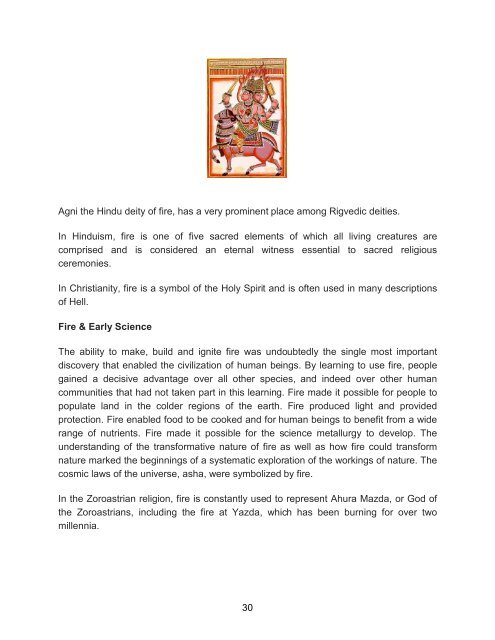KathaUpanishad
You also want an ePaper? Increase the reach of your titles
YUMPU automatically turns print PDFs into web optimized ePapers that Google loves.
Agni the Hindu deity of fire, has a very prominent place among Rigvedic deities.<br />
In Hinduism, fire is one of five sacred elements of which all living creatures are<br />
comprised and is considered an eternal witness essential to sacred religious<br />
ceremonies.<br />
In Christianity, fire is a symbol of the Holy Spirit and is often used in many descriptions<br />
of Hell.<br />
Fire & Early Science<br />
The ability to make, build and ignite fire was undoubtedly the single most important<br />
discovery that enabled the civilization of human beings. By learning to use fire, people<br />
gained a decisive advantage over all other species, and indeed over other human<br />
communities that had not taken part in this learning. Fire made it possible for people to<br />
populate land in the colder regions of the earth. Fire produced light and provided<br />
protection. Fire enabled food to be cooked and for human beings to benefit from a wide<br />
range of nutrients. Fire made it possible for the science metallurgy to develop. The<br />
understanding of the transformative nature of fire as well as how fire could transform<br />
nature marked the beginnings of a systematic exploration of the workings of nature. The<br />
cosmic laws of the universe, asha, were symbolized by fire.<br />
In the Zoroastrian religion, fire is constantly used to represent Ahura Mazda, or God of<br />
the Zoroastrians, including the fire at Yazda, which has been burning for over two<br />
millennia.<br />
30


















